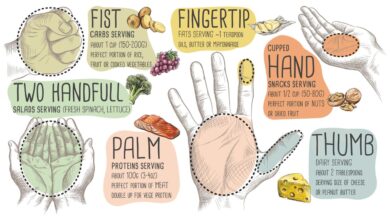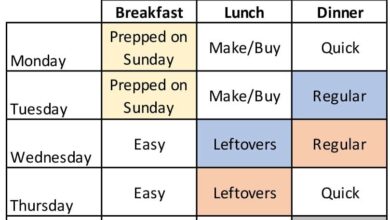
3 Surprising Takeaways About Being a Registered Dietitian
You might think you know what a registered dietitian does, but I bet you’d be surprised by the reality of the profession. 3 Surprising Takeaways About Being a Registered Dietitian will challenge your assumptions and reveal a world of hidden opportunities in this vital field.
While we all know the importance of nutrition, many people picture registered dietitians solely in clinical settings, advising patients on hospital meal plans. However, their work extends far beyond that, touching every facet of health and wellness. From food policy and community outreach to sports nutrition and culinary arts, registered dietitians are leading the charge towards a healthier future.
The Scope of a Registered Dietitian’s Work
The role of a registered dietitian (RD) goes far beyond simply telling people what to eat. It’s a multifaceted profession that involves applying scientific knowledge to help individuals and communities achieve optimal health through food and nutrition. While many people associate RDs with clinical settings, their impact extends far beyond hospitals and clinics.
One of the most surprising things I’ve learned as a registered dietitian is how many people struggle to get enough vegetables in their diet. It’s a common theme, and I’ve found that a lot of people are simply looking for creative ways to incorporate more veggies into their meals.
If you’re looking for some inspiration, I highly recommend checking out this article on 5 ways to up your vegetable game. It’s full of helpful tips and tricks for adding more veggies to your daily routine. And trust me, once you start incorporating more vegetables, you’ll be surprised at how much better you feel!
Diverse Applications of Dietetics
The work of RDs touches various aspects of health and wellness, encompassing diverse settings and populations.
- Clinical Settings:This is where many RDs begin their careers. They work in hospitals, clinics, and long-term care facilities, providing nutritional counseling and support to patients with various conditions, including diabetes, heart disease, cancer, and eating disorders.
- Community Nutrition:RDs play a crucial role in promoting public health through community-based programs. They may work in schools, government agencies, non-profit organizations, and food banks, educating individuals and families about healthy eating habits and food choices.
- Food Industry:RDs are increasingly sought after by food companies, where they contribute to product development, research, and marketing. They ensure the nutritional integrity of products, develop recipes, and advise on food labeling and claims.
- Sports Nutrition:Athletes benefit greatly from the expertise of sports RDs. They provide personalized nutrition plans to enhance performance, optimize recovery, and promote overall well-being. They may work with professional teams, individual athletes, or sports organizations.
- Research and Academia:RDs contribute to the advancement of nutrition science through research, teaching, and policy development. They may work in universities, research institutions, or government agencies, conducting studies and advocating for evidence-based nutrition practices.
Real-World Impact, 3 surprising takeaways about being a registered dietitian
Here are some real-world examples of how RDs make a difference:
- Helping Patients Manage Diabetes:RDs work with individuals with diabetes to create personalized meal plans, teach them about carbohydrate counting, and help them understand the impact of food choices on blood sugar control. This can significantly improve their health outcomes and reduce the risk of complications.
Being a registered dietitian is more than just telling people what to eat. It’s about understanding the psychology behind food choices, advocating for nutrition policy, and even delving into the unexpected ways our bodies respond to different environments. For example, I was fascinated to read about how a vacation helped Charlotte lose half her body weight, a story that highlights the power of changing your routine and mindset.
how a vacation helped charlotte lose half her body weight It’s these kinds of surprising stories that remind me that nutrition is a journey, not a destination, and that there’s always something new to learn.
- Promoting Healthy Eating in Schools:School RDs work with administrators, teachers, and students to implement nutrition education programs, promote healthy school lunches, and encourage healthy snack choices. This can have a long-lasting impact on children’s eating habits and overall health.
- Developing Nutrient-Rich Food Products:RDs working in the food industry contribute to the development of new food products that are both delicious and nutritious. They can ensure that products meet specific nutritional needs, such as providing essential vitamins and minerals, reducing sodium content, or increasing fiber intake.
One of the most surprising takeaways about being a registered dietitian is how much people love pizza! It’s a staple food for many, and it doesn’t have to be unhealthy. There are tons of delicious and nutritious options out there, and I’m always on the lookout for new favorites.
For example, check out these 11 healthy pizzas under 400 calories. This just proves that even as a dietitian, I can enjoy my favorite foods without sacrificing my health goals!
- Supporting Athletes’ Performance:Sports RDs work closely with athletes to develop customized nutrition plans that optimize performance, promote recovery, and minimize the risk of injuries. They can help athletes fuel their training, hydrate effectively, and make informed choices about supplements.
- Advocating for Nutrition Policy:RDs contribute to the development and implementation of nutrition policies that impact public health. They may advocate for policies that promote access to healthy foods, encourage healthy eating habits, and reduce the prevalence of diet-related diseases.
The Human Element in Nutrition Counseling: 3 Surprising Takeaways About Being A Registered Dietitian

The field of nutrition counseling is not just about delivering dietary recommendations. It’s about building meaningful connections with clients and empowering them to make positive changes. A registered dietitian’s ability to establish rapport and trust is crucial in guiding individuals towards a healthier lifestyle.
Building Rapport and Trust
Establishing rapport and trust is essential for effective nutrition counseling. It allows clients to feel comfortable sharing their personal experiences, challenges, and goals.
“When clients feel heard and understood, they are more likely to be open to the advice and support you provide.”
- Active Listening:Active listening involves paying full attention to the client’s words, both verbal and nonverbal. This includes maintaining eye contact, nodding, and asking clarifying questions to ensure you understand their perspective.
- Empathy:Empathy involves understanding and sharing the client’s feelings. It means acknowledging their emotions and validating their experiences. This can be as simple as saying, “I understand that this can be frustrating.”
- Building a Collaborative Relationship:Instead of dictating a rigid meal plan, a registered dietitian works collaboratively with the client to develop a personalized plan that aligns with their individual needs and preferences. This fosters a sense of ownership and commitment.
Utilizing Empathy and Active Listening to Understand Individual Needs and Goals
Empathy and active listening are vital for understanding the unique needs and goals of each client. Every individual has a different story, and a registered dietitian must be sensitive to these differences.
- Personal Circumstances:Clients may have different dietary restrictions, cultural backgrounds, and financial constraints. A registered dietitian must be aware of these factors and tailor their recommendations accordingly.
- Motivation and Goals:Clients may have different levels of motivation and varying goals. Some may be seeking to lose weight, while others may be focused on improving their overall health or managing a specific condition.
- Values and Beliefs:Clients may have different values and beliefs about food and nutrition. A registered dietitian must be respectful of these beliefs and incorporate them into the counseling process.
Motivating and Supporting Clients in Making Sustainable Lifestyle Changes
Motivating and supporting clients in making sustainable lifestyle changes can be challenging. It requires patience, understanding, and a commitment to helping them overcome obstacles.
- Setting Realistic Goals:Setting realistic goals is crucial. Clients are more likely to succeed when they feel they can achieve their goals.
- Providing Ongoing Support:Providing ongoing support and encouragement is essential. Clients may encounter setbacks, and a registered dietitian can help them stay on track and overcome these challenges.
- Focusing on Behavior Change:Focusing on behavior change rather than just providing dietary recommendations is key. This involves identifying the factors that contribute to unhealthy eating habits and developing strategies to address them.
Conclusion
Being a registered dietitian is not just about knowing the science of nutrition; it’s about connecting with people, understanding their unique needs, and empowering them to make positive changes. It’s a profession that requires constant learning, adaptability, and a genuine passion for helping others.
If you’re looking for a career that’s both intellectually stimulating and personally rewarding, then consider the world of registered dietetics.






